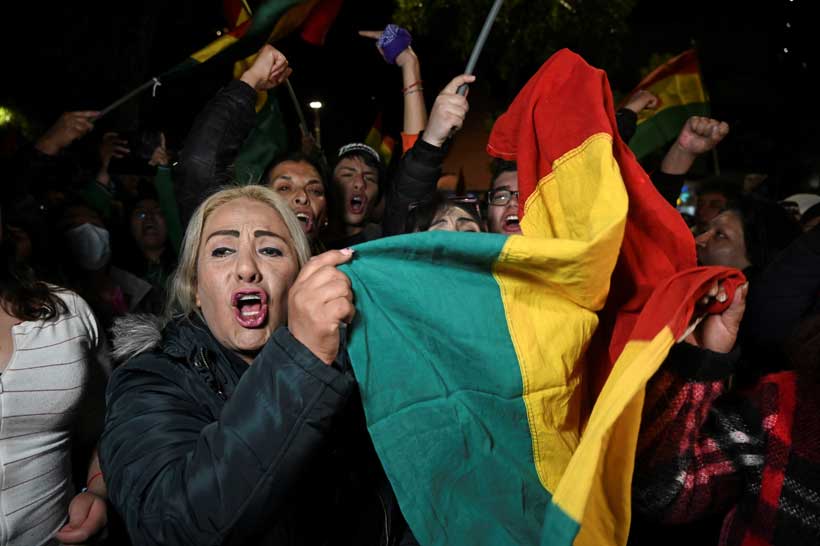Bolivia’s presidential runoff on October 19th 2025, marked a major political shift for the country. For the first time since 2005, no candidate from Evo Morales’s Movement Toward Socialism (MAS) party is on the voting ballot. In the August primary, centrist Rodrigo Paz won 32.2% of the vote versus only 3.2% for the official MAS ticket, while conservative former president Jorge “Tuto” Quiroga was second with about 27%. With MAS’s candidate trounced, Paz and Quiroga, both market-friendly, right-leaning politicians advanced to the runoff.
This officially put an end to MAS’s two-decade dominance and will establish Bolivia’s first non-MAS government in nearly twenty years. Analysts see this as a turning point, a moment when Bolivia moves away from the leftist model that defined the Morales era.
Legacy of Morales and the “MAS” Era
MAS, founded by President Evo Morales in the early 2000s, reshaped Bolivia’s politics and economy. Morales, who served from 2006 to 2019, was the country’s first indigenous head of state. Under his rule, poverty fell sharply, and millions of bolivians moved up into the middle class.
Critics say the party became overly centralized and failed to diversify the economy before gas revenues fell. Questions over term limits and alleged corruption defined Morales’s later years, culminating in his ouster in 2019 amid disputed elections and unrest. Even after Morales went into exile, MAS remained powerful, with Luis Arce, Morales’s former economy minister, winning the presidency in 2020.
By 2025, MAS no longer had the popularity it once took for granted. Voters cited inflation at a 40-year high and fuel shortages.
The Two Right-Wing Contenders
Rodrigo Paz, a senator and son of a former president, ran as a centrist populist in the Christian Democratic Party. He vowed to maintain social programs for the poor while promoting private-sector-led growth. Paz campaigned on a moderate platform: decentralize government spending, give tax incentives to small businesses, and phase out fuel subsidies gradually.
Jorge “Tuto” Quiroga is a veteran conservative. He served briefly as president in 2001-02 and campaigned on a bold austerity agenda, deep cuts to public spending and wanting to abolish or privatize loss-making state firms. Quiroga pitched himself as a reformer, arguing that the country is broke and pledging dramatic, radical change. In debate, he framed Bolivia’s last 20 years as lost and promised a return to business-friendly policies and property rights.
Shifting Alliances Abroad: From China and Russia to the U.S.
The expected rightward turn will reshape Bolivia’s foreign policy. Under Morales and Arce, Bolivia had aligned itself mostly with China and Russia. Chinese firms had multibillion-dollar lithium contracts, and Russia’s Rosatom planned a lithium plant in return for Bolivian uranium access. The MAS government often distanced Bolivia from Washington.
Now, both Paz and Quiroga pledge the opposite: a return to the U.S. orbit. They argue that better U.S. relations can bring investment, aid and energy deals. The U.S. State Department has already praised the election as a transformative opportunity, with Secretary Marco Rubio saying both candidates want stronger, better relations with the United States.
The U.S. may seize the chance to expand its footprint, as it did recently in Argentina, by offering aid or investment in exchange for political alignment. That would be a dramatic flip, with some observers framing the vote as a pro-market shift and U.S. embrace. Argentina and Bolivia’s swings may reveal the fate of other similar political regimes in Latin America, such as Chile’s and Colombia’s upcoming elections.
Domestic Impact and the Path Ahead
Domestically, the new government will face immediate challenges, like the economy having inflation above 20%, empty reserves, and protests over low growth. Paz and Quiroga both promise stimulus, insisting that fuel and social programs will not vanish overnight. Economists warn the fiscal hole is immense, meaning politically unpopular changes are unavoidable.
Any cutbacks will anger MAS’s former base. The powerful miners’ union COB has already warned it will oppose any threats to the social and economic gains of the 2010s. Indigenous groups and rural voters, whose support lifted MAS to power, may feel betrayed if subsidies and jobs are slashed. Paz and Quiroga will need to show voters they can fix the economy without undoing all of Morales’s legacy.
Both candidates have signaled that Bolivia will de-emphasize its former leftist alignment and turn east to west. For U.S. and European observers, that could perhaps mean more cooperation on trade, investment and regional security. But it also raises questions: will Bolivia’s rich lithium and natural-gas resources be opened more to Western firms and can the country still maintain the social gains of the MAS years under a pro-market agenda?
As Paz himself said, “ideologies don’t put food on the table”. Voters clearly decided they wanted change, but whether that leads to better conditions or new problems for Bolivia will depend on how this new government balances its reforms.
With information from Reuters.
